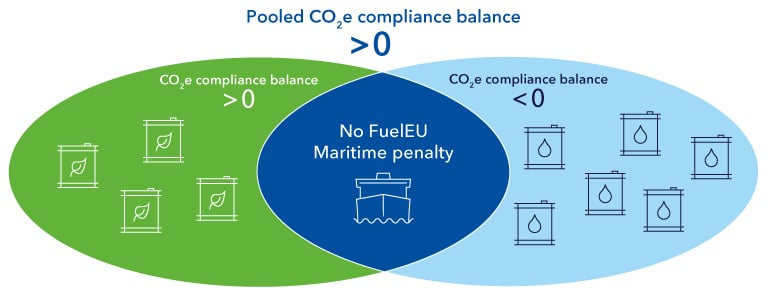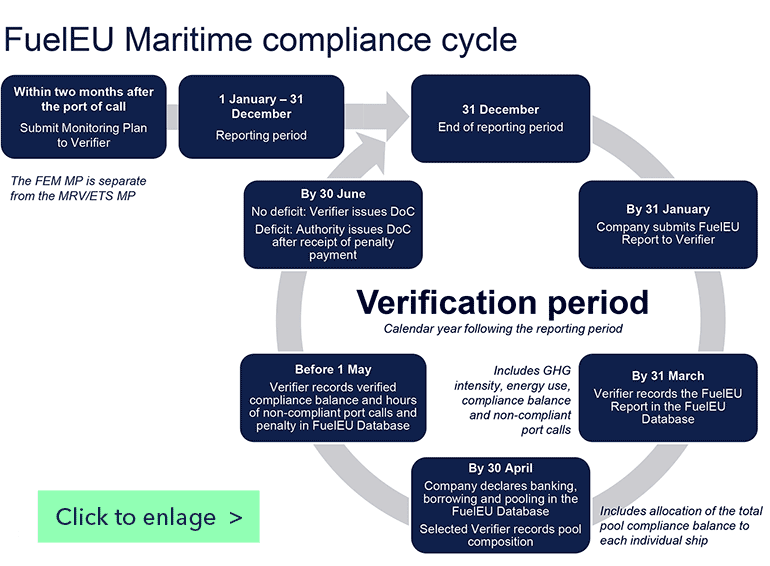FuelEU Maritime – how to comply with regulations
These are the key dates and the actions shipowners need to take:
- Within two months after first port of call in 2025: Submit the FuelEU Monitoring Plan (MP) to an accredited verifier, such as DNV. This plan should contain an assessment of every ship and provide key details on how emissions will be monitored and reported. Note that a change of verifier requires a re-assessment of the MP.
- By 31 January of each year: Provide the FuelEU report to the verifier. Should there be a change of company, a partial report should be verified within one month after the company transfer.
- By 31 March of each year: Verifier records compliant FuelEU report in FuelEU Maritime database. This should be a full-year FuelEU report.
- By 30 April of each year: Record advance compliance surplus or compliance banking and announce pooling intention in the FuelEU Maritime database. The Verifier records the composition of vessel pools and approves compliance balance.
- By 30 June of each year: Verifier issues FuelEU Document of Compliance. In the event of a penalty, the Document of Compliance is issued by the authorities after receipt of payment.
By following all these steps, you as a shipping company can be assured that you are in compliance with the FuelEU Maritime regulation.
The best way to ensure is to...
Use energy sources of a lower well-to-wake GHG intensity, such as:
- Sustainable biofuels
- Renewable fuels of non-biological origin (RFNBO) (e.g. e-methanol)
- Recycled carbon fuels (RCF)
- Fossil LNG/LPG
- Shore power
- Wind-assisted propulsion
Use the flexibility mechanisms:
- Borrow an advance compliance surplus from the next year (maximum 2%, not allowed for two consecutive periods)
- or include the ship’s compliance balance in a pool of ships (also possible in collaboration with other companies)

Pay the penalty:
Not complying with the well-to-wake GHG intensity target from 2025 will result in a penalty of EUR 2,400 per tonne of VLSFO-equivalent.
More on FuelEU Maritime
On-demand webinar: Commercial implications of FuelEU Maritime and EU ETS - New insights
Get access to the recording and slidedeck
FuelEU Maritime white paper for download
Learn more about the requirements, compliance strategies, and commercial impacts
What are the commercial implications of FuelEU Maritime?
Listen to our 20-minute podcast and get valuable insights
How can FuelEU’s new pooling mechanisms be put into practice?
Listen to our 26-minute podcast and get valuable insights
Related topics and services
MRV (EU and UK)
Visit our topic page
EU ETS – Emissions Trading System
Visit our topic page
IMO DCS – Data Collection System
Visit our topic page
CII – Carbon Intensity Indicator
Visit our topic page
Emissions Connect
ADVANCE from raw data to continuous business control
Decarbonization Plan
A long-term decarbonization strategy to ensure cost-effective fleet compliance.
